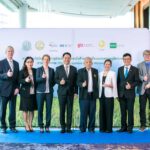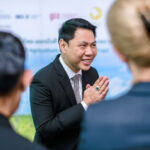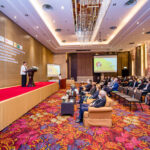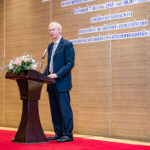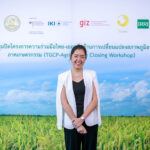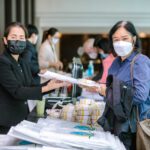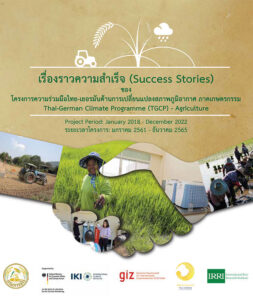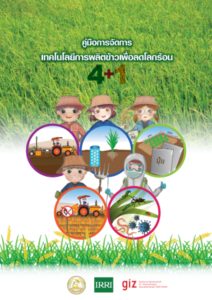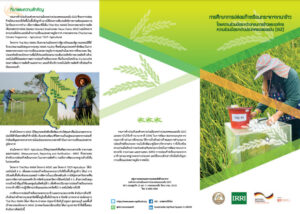The results of five years of successful implementation of the Thai-German Climate Programme – Agriculture project or “TGCP-Agriculture” are clear: sustainable rice farming is better for the climate, better for the environment and better for farmers who achieve higher incomes.
Rice plays an important role in Thailand. It is the main commodity for the nation’s agricultural exports and a major staple food for the Thai population. But rice farming comes at a cost: according to Thailand’s Second Biennial Update Report (SBUR), rice farming generated the largest amount of greenhouse gas (GHG) emissions within the agriculture sector, mainly due to traditional rice cultivation practices of flooding paddy fields. This includes a 55% share of methane which has a global warming potential 28 times higher than carbon dioxide.
Sustainable rice farming emits an estimated 30% less methane and uses significantly lower inputs of water, energy, fertiliser and pesticides, which in turn leads to lower environmental impacts and higher returns for farmers.
To help the Thai government in addressing the climate impact of rice cultivation, TGCP-Agriculture has developed the first Monitoring, Reporting and Verification (MRV) system for the rice sector. This has allowed rice researchers to systematically assess the potential for and monitor the progress of mitigating GHG emissions from rice farming while helping the sector adapt to the impacts of climate change.
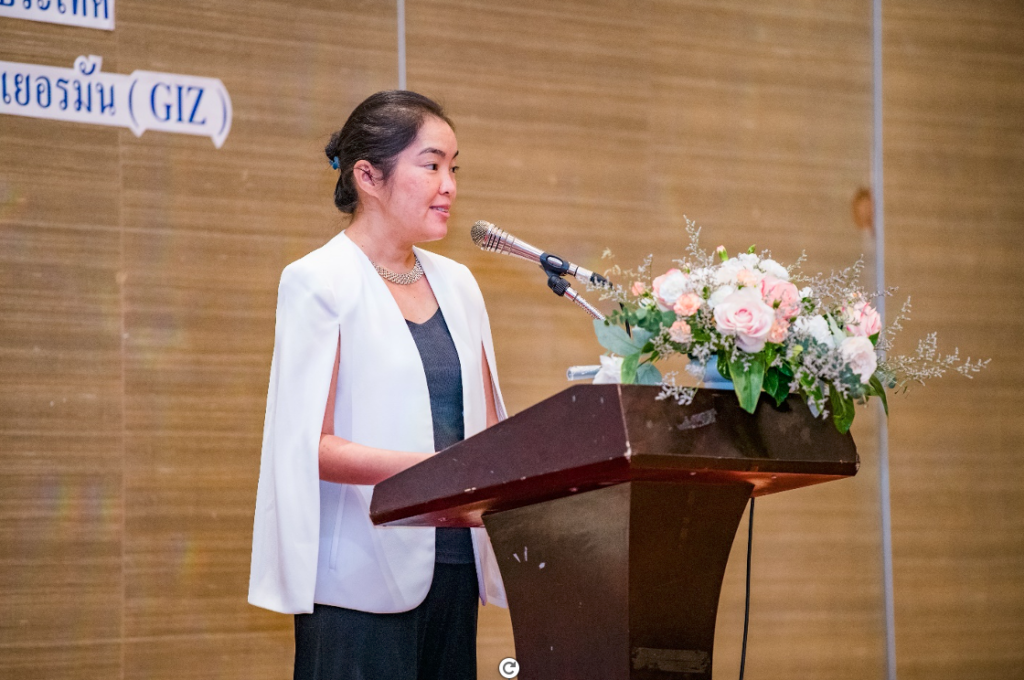
The TGCP-Agriculture project has worked with local and international stakeholders comprising the Ministry of Agriculture and Cooperatives (MoAC), the Rice Department, the National Bureau of Agricultural Commodity and Food Standards (ACFS), the Office of Natural Resources and Environmental Policy and Planning (ONEP), the Office of Agricultural Economics and the International Rice Research Institute (IRRI). The aim is to support Thailand’s rice researchers with technology and expertise for primary measurement and calculation of GHG emissions from rice fields, and to lay strong foundations for an MRV system to collect data and monitor progress on mitigation into the future. Results include a MRV system manual that serves as a guideline to transfer knowledge on GHG calculation to future generations of rice researchers.

Throughout the five-year (2018 – 2022) implementation period, a series of training sessions on sustainable rice practices were held. More than 30,000 agricultural officers and smart farmers in the six central provinces of Chainat, Sing Buri, Ang Thong, Ayutthaya, Pathumthani, and Suphanburi, regarded as the nation’s rice bowl, participated in the trainings. These experts form the core of a knowledge network that will continue to scale up the adoption of sustainable rice practices in Thailand.

Mr. Krit Uttamavetin, Deputy Director-General, the Rice Department, noted that Prime Minister Prayut Chan-o-cha announced during COP26 last year that Thailand aimed to reach carbon neutrality by 2050 and net-zero greenhouse gas emissions by 2065 following the Bio-Circular-Green (BCG) Economy concept. This transformation needs to be just and beneficial for all. To achieve these goals, all stakeholders in the rice sector need access to technology and innovation, so they can enhance rice farming efficiency and productivity while helping reduce climate change impacts. Technology and innovations learned from the project can increase rice productivity and efficiency while reducing global warming in the Thai rice sector.
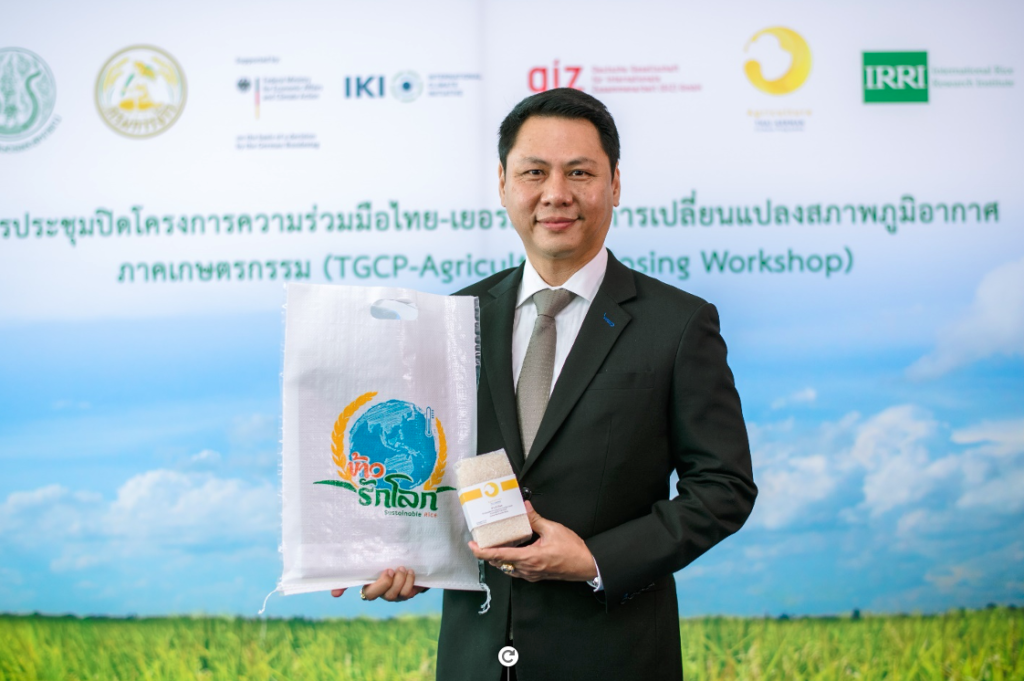
“Over the years we have continuously worked to develop comprehensive low-emission rice farming technologies for sustainability. Knowledge and technological expertise have been passed on to researchers and community-based rice farmers who are regarded as key to putting the MRV system into practice. Participatory engagement from smallholder farmers is crucial to reducing their production costs while increasing high-quality, yet low-emission rice yields following the Thai Agricultural Standard for Sustainable Rice,” Mr.Krit said.

Mr. Reinhold Elges, GIZ Country Director Thailand and Malaysia, said that thanks to the collaboration under the TGCP-Agriculture project, Thailand is well positioned to scale climate action in the rice sector. “Sustainable rice production will play an important role in the overall transformation of the Thai economy towards decarbonisation. This transformation has to be just and bring benefits for all stakeholders. It is a wonderful achievement that with sustainable rice production, farmers are not only protecting the environment but also earning higher incomes. I am proud that we can confirm that sustainable rice is better rice, for both people and planet. We will continue to help our agricultural partners in Thailand by setting a target to promote the adoption of sustainable rice farming. This will be a huge benefit to participating farmers and agricultural officers at both the research and practical levels. If widely adopted, these innovative practices will also help Thailand to achieve its goal of decisively addressing the global climate crisis.” ■

